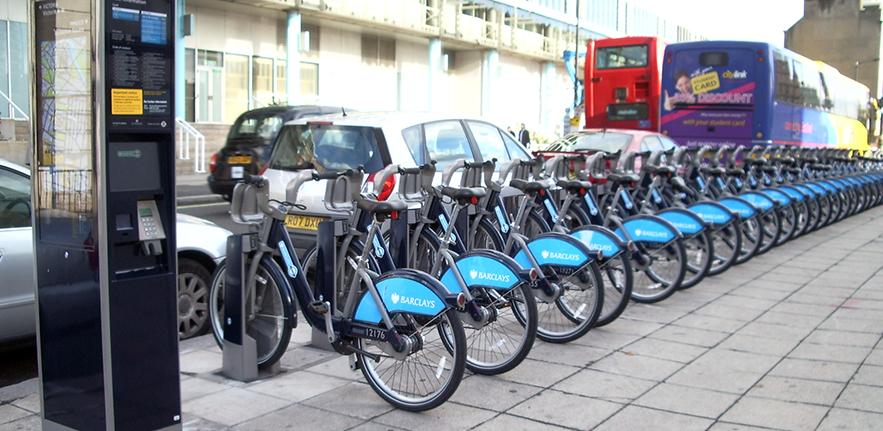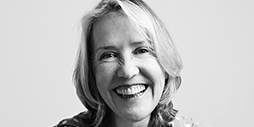
4 October 2017 – Jill Duggan, Director of The Prince of Wales’ Corporate Leaders Group, reflects on shifting consumer patterns in the 21st century as consumers increasingly choose experience over ownership and what this means for business leaders and policymakers.
Two hundred and fifty years after the first industrial revolution, there are signs that our consumption patterns, in the west at least, are shifting. The 21st century western consumer increasingly values experience and utility over ownership. Take cars, for example. While the research is varied and not wholly conclusive, the likely trend seems to be away from car ownership by western city-dwellers because – thanks in part to digital technology – their mobility needs can be solved by a combination of public transport, home working and car sharing.
Digitisation also means that we no longer need to purchase DVDs or CDs because we can stream entertainment services when and where we want them. Similarly, people can buy books online and read them on their e-reader; and ‘rent-anything’ sites like Fat Lama remove the need to buy a stepladder for the odd occasion you need to enter the attic, or a tuxedo for the once-in-a-decade college reunion.
It’s not just about access and convenience; there’s a philosophy behind this shift, with a wave of de-cluttering and keeping only things that ‘bring us joy’, reflecting a society that is increasingly satiated and perhaps also aware of the wider environmental costs of unfettered accumulation of stuff. Indeed, a recent study suggested people experienced more happiness when they spent money on services that saved them time, than on new consumer goods. Beyond a certain point, it seems we would like to use measures other than possessions to enhance our wellbeing and status.
This shift is mirrored in business where market leaders are changing production methods and business models to achieve improved resource efficiency and reduce waste. A recent report by The Prince of Wales’s Corporate Leaders Group shows how enlightened companies, spurred on by an awareness of scarcity and the implications for their bottom line, are trying to get more for less from the same inputs, and developing closed-loop systems that enable products to be disassembled and remanufactured repeatedly.
Some companies are shifting from selling goods to selling services and expertise, encouraging their customers to subscribe to maintenance contracts rather make one-off or repeated purchases of new products. Others are co-operating with businesses in unrelated sectors to realise ‘industrial symbiosis’; where one firm’s waste product is another’s valuable input.
Businesses are doing this to reduce their carbon emissions, limit damage to the environment, stay ahead of regulation, and shield themselves from price volatility that results from scarcity or unreliable supply. Those that really thrive will be the ones that go beyond recycling and reducing waste, to fully reinventing business models that reflect and respond to the new world order. And they will need help from regulators to create the conditions that make this re-visioning possible (and profitable).
The changes afoot could help solve many of the 21st century’s problems. A sharper focus on resources and how we use them could shift employment patterns in a positive way, unleashing creativity, and promoting local employment and initiatives. Moving from a model based on production and consumption and waste, to conserving resources and extending the life of products could create more jobs in fixing and mending, while dramatically reducing emissions and easing the pressure on scarce resources.
However, there are also risks that need to be managed. For example, autonomous vehicles will mean the number of professional drivers in 10 or 20 years will be a fraction of the number today, while lift sharing services will probably mean fewer people are involved in the production and sale of cars. On the other hand, car-sharing clubs will need staff to develop their businesses, design their apps, and maintain, clean and charge their vehicles.
Similarly, a focus on resource productivity may mean fewer people are involved in extraction of minerals over time – a well paid but dangerous occupation even today. But many more should be employed disassembling previously extracted materials to extend their life and reduce waste. Protecting the employment rights of people engaged in the re-use and sharing economy will be critical.
Beyond the employment impacts, there is a danger of over provision, say, of car sharing leading to congestion as low prices move people off public transport and back into individual vehicles. The recent furore over the renewal of the app-based taxi firm Uber’s licence to operate in London is an example of the range of challenges. To paraphrase Donald Rumsfeld, there are “known knowns”, “known unknowns”, and “unknown unknowns”. The pace of change is rapid and is testing society’s ability to anticipate and adapt.
There are real opportunities in all this for improving our wellbeing and job satisfaction, while benefitting the environment, but the benefits will not rise to the top unaided. Policymakers need to think creatively on how to assist these changes in a way that minimises the down sides and fosters opportunity.
The Prince of Wales’s Corporate Leaders Group brings together businesses to work towards a step change in policy and action on climate change.
Blog first published on the Business Green website.





